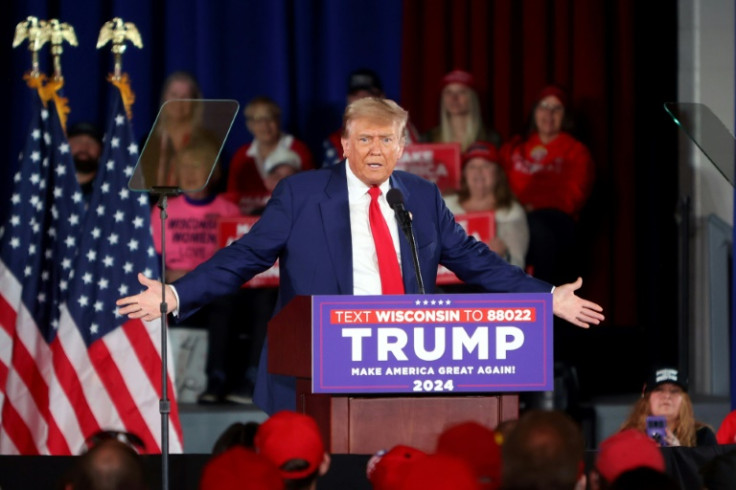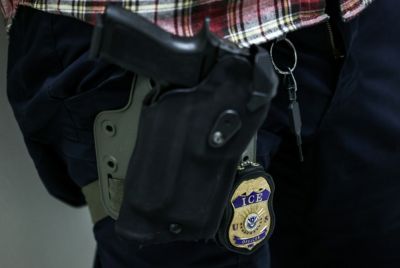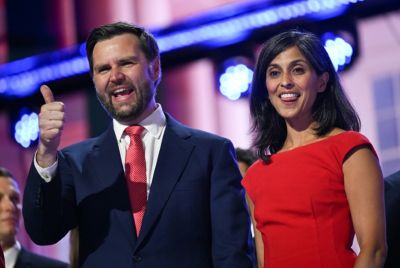No Tax on Tips! Full List of Jobs That Qualify Under Trump's 'Big Beautiful Bill' — Is Yours on It?
Only 2.5% of the US workforce, around 4 million people, will benefit

Good news for anyone earning tips! The way you get paid is about to change. President Trump's 'Big Beautiful Bill' has officially eliminated federal income tax on tips. But which occupations qualify for this new rule? Did your job make the cut, and what does this mean for your take-home pay?
Since Labour Day, the Treasury Department has been compiling a list of occupations that qualify for the new 'no tax on tips' policy from the Trump administration, The Post has confirmed.
Who Will Benefit?
Passed by narrow majorities in Congress earlier this year, Trump's 'One Big Beautiful Bill' did not initially detail which professions would qualify for the tax cut, with jobs as varied as golf caddies and home movers being considered, Axios first reported on Monday.
BREAKING 🚨 Tons of Patriots cheered when JD Vance said how much the One Big Beautiful Bill will help families in Georgia
— MAGA Voice (@MAGAVoice) August 21, 2025
- No Tax on Tips
- No Tax on Overtime
- Increased Child Tax Credit
- Take home pay increase of over $10,000
THIS IS HUGE 🔥
pic.twitter.com/fz5qgiGG0u
The complete list will be made public in the Federal Register as part of new regulations proposed by the Treasury and the Internal Revenue Service, the outlet reported.
1. Food and Drink Service
This category of jobs with non-taxed tips covers a range of roles, including bartenders, waitstaff, food servers, dining room and cafeteria attendants, chefs, cooks, food preparation workers, fast-food and counter staff, dishwashers, hosts for restaurants, lounges or coffee shops and bakers.
2. Entertainment and Events
The qualifying roles in this area include gambling dealers, change persons and booth cashiers in gambling establishments, cage workers, writers and runners for gambling and sports books, dancers, musicians, singers, disc jockeys (excluding those on radio), entertainers and performers, along with ushers, lobby attendants, ticket takers and attendants for locker rooms, coatrooms and dressing rooms.
3. Hospitality and Guest Services
The jobs in this category that are eligible for non-taxed tips include baggage porters, bellhops, concierges, hotel, motel and resort desk clerks, as well as maids and housekeepers.
4. Personal Services
The tax policy also applies to personal care and service workers, private event planners, photographers, videographers for private events and portraits, event officiants, pet caretakers, tutors, nannies and babysitters.
5. Personal Appearance and Wellness
The wide-ranging list in this area includes skincare specialists, massage therapists, barbers, hairdressers, hairstylists, cosmetologists, shampooers, manicurists, pedicurists, eyebrow threading and waxing technicians, makeup artists, exercise trainers, group fitness instructors, tattoo artists, piercers, tailors and shoe and leather workers or repairers.
6. Recreation and Instruction
This category will also cover golf caddies, self-enrichment teachers, recreational and tour pilots, tour guides, travel guides and sports and recreation instructors.
7. Transportation and Delivery
The final category includes parking and valet attendants, taxi and ride-share drivers or chauffeurs, shuttle drivers, delivery workers, personal vehicle and equipment cleaners, private and charter bus drivers, water taxi operators, charter boat workers, rickshaw, pedicab and carriage drivers, as well as home movers.
The Limited Impact of the Tip Tax Policy
While President Trump's 'no tax on tips' policy has a $25,000 (£18488.80) maximum deductible, it's important to note that it applies to a relatively small segment of the population. According to The Budget Lab at Yale, only about 4 million Americans, or 2.5% of the country's workforce, are employed in industries that rely on tips.
Breaking News: Harris No Tax On Tips comes with strings attached
— Wendy Patterson (@wendyp4545) August 21, 2024
It comes with:
Wage Restrictions
Doesn't include Payroll Tax
Has an Unknown Cap pic.twitter.com/lvcFoTkB7T
The Budget Lab at Yale is a non-partisan policy research centre that provides in-depth analysis of federal policy proposals for the American economy.
© Copyright IBTimes 2025. All rights reserved.






















